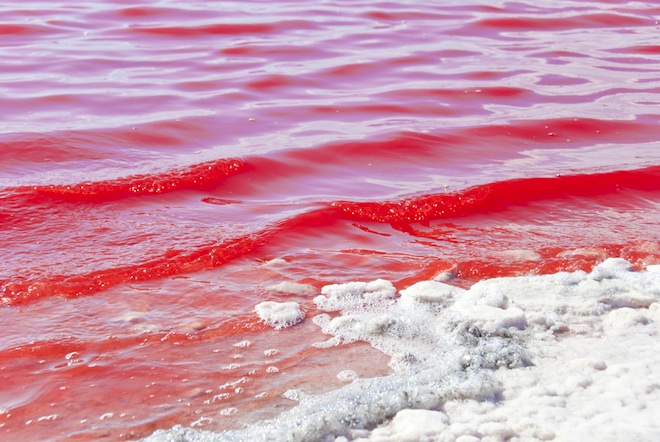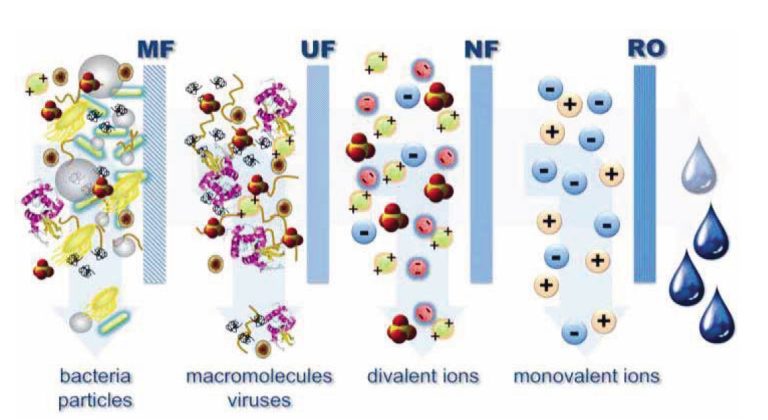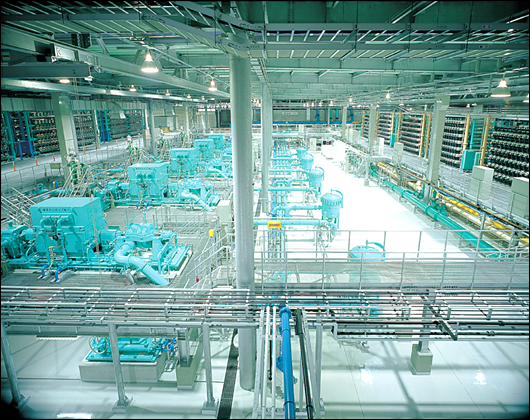Desalination of seawater forms a growing source of drinking water. However, algal blooms can hamper the operation of desalination plants for weeks. Dr. Loreen Villacorte (Unesco-IHE) developed some recommendations.
Reverse osmosis is a technology on the rise for producing drinking water from seawater. It relies on ultrafine membranes with pores of atomic dimensions over which a pressure of typically 40 – 70 bar is applied. The result is that not even salt ions can pass through the membrane, just the desalinated water. It has become the dominant desalination technology since about 2000 and the costs are expected to come down to half a dollar for 1.000 litres by 2015.
This is good news for all major cities near a coast since a growing population, increased living standards and over-exploitation of groundwater reserves has increased the world’s thirst for drinking water. The UN World Water Assessment Programme estimated that reverse osmosis (RO) might increase the global clean water supply by 20 % between 2020 and 2030.

As always, there is a snag in these projections. Water production plants in Oman and the United Arab Emirates found out the hard way when in 2008 the so-called red-tide broke out. It was an algal bloom that clogged up the first filters of the plant consisting of granular media like sand. This resulted in insufficient primary filtering and unacceptable feed water for the downstream RO system. As a consequence, a number of plants had to be closed.
’Unacceptable’ means the fouling capacity of the water, as measured by the silt density index SDI, is too high. “SDI value should be smaller than 5,” Villacorte explains. “If it falls higher than 5, the operator often choose the option to shut down the plant to avoid losing the warranty. However, as a consequence, the operator (usually a private company) has to pay a penalty cost to the client (government) for not delivering drinking water to the consumer.”
The people from Oman are not the only ones to suffer from these algal blooms, which may continue for days or a few weeks. Other arid coastal regions relying largely on desalinated drinking water, for example in Chile and California are just as vulnerable.
Dr. Loreen Villacorte, a water supply engineer from the Philippines who did his PhD research at Unesco-IHE and TU in Delft, calls membrane fouling ‘the main Achilles heel for the wider deployment of reverse osmosis.’
In practice, reverse osmosis is preceded by a number of other conventional pre-treatment techniques such as sand filtration, coagulation and sedimentation. Micro- and ultrafiltration membranes generally precede the reverse osmosis filter in order to reduce membrane fouling of the delicate RO filter.

Villacorte set out to measure what exactly it is that clogs up the filters when algae bloom. He found out that just filtering the algae itself doesn’t take away the problem. It is smaller algal organic matter that clogs up the filters. Further analysis led him to sticky polysaccharides and glycoproteins as the main culprit. The concentration of these transparent exopolymer particles or TEPs seems to correlate well with clogging of ultrafilters and biological fouling of RO-filters.
The good news is that ultrafilters with pores of a few nanometres are effective in prefiltering the TEPs and thus preventing biofouling of the RO filters.
If the ultrafilters get clogged themselves, they can usually be cleaned by backwashing them, explains Professor Maria Kennedy who supervised Villacorte’s PhD research. Pressure is then applied from the other side to flush away the fouling with water and some chemical cleaning solutions if need be.
When algal bloom occurs, Villacorte recommends regular monitoring of the fouling of the ultrafilters, the concentrations of algae and their sticky produce. Armed with this information, he is confident that corrective measures can be taken in the pre-treatment system. Thus production can continue, albeit with the help of some chemicals.
Loreen Ople Villacorte, Algal Blooms and Membrane Based Desalination Technology, PhD supervisor Prof. Maria Kennedy (CEGS and Unesco-IHE), January 8th 2014.



Comments are closed.